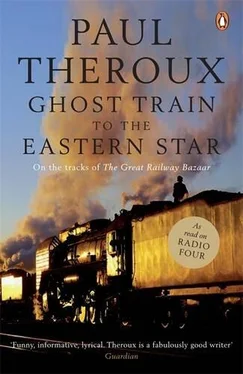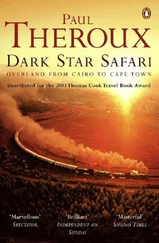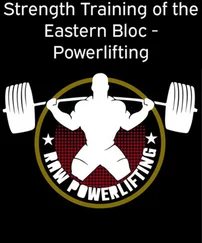That it is one of the most easily negotiated and hospitable cities in the world makes me a mild Turkophile. Although it's a frustrating city to drive in (the traffic moves at a crawl), it is full of alternatives — a metro, commuter trains, buses, dolmuses (minivans) — and it is one of the great cities for walking or taking a ferry from embankment to embankment. I had been too young and hurried to appreciate its virtues on my first visit. For one thing, Istanbul is a well-used city: its marvels are not mere artifacts and museum pieces. They are part of everyday life. The ancient mosques and churches, the bazaars, the bridges, the gardens, the promenades, the fish markets, and the fruit stalls are busily patronized by Turks. Being a secular country, Turkey thrives on Friday, the Muslim day of prayer and rest, and the bazaars and shops are closed on Sunday, the Christian Sabbath.
Istanbul had an air of Sunday serenity and an off-season slackness. Worry beads were not in evidence. It was only the next day in the empty bazaars that the hawkers were frowning, but when I remarked on the lack of customers, they said, "The tourists will come next month, Inshallah "
I was aware of being a solitary traveler on a long journey. With no detailed onward plans, I was not looking much beyond Turkey at the moment. The newspaper headlines were all about the Iraq War — it was a one-day bus trip to the Iraq border. The war was clearly unpopular, but no one singled me out or harassed me. On the contrary, I was welcomed in restaurants, and I delighted in the food: stuffed grape leaves, bluefish, cheese dumplings, and an eggplant dish so delicious its name is a catchphrase, imam bayildi, "the imam fainted."
In the rain and the raw March wind off the Bosporus, the streets were uncrowded. I walked from mosque to mosque, then made some calls, agreeing to give a talk at a local college, as I had done on my first visit. I was invited to a dinner party and asked if there was anyone I wished to meet.
"What about Orhan Pamuk?"
"He usually says no."
The next day I gave my talk, at Bogazçi University, a former missionary college on the heights of Bebek, and this being hospitable Turkey, I was guest of honor at a lunch where all the other diners were women. One was an American who was writing a book on all the writers who had lived and written about Istanbul, among them Mark Twain, James Baldwin, Paul Bowles, and a man I bumped into after lunch, John Freely, a New Yorker who has lived and worked here for thirty-five years, the author of many books on Istanbul subjects.
Since working women in male-dominated societies are often more forthright and funnier than women in more liberated places, this campus lunch was lively and pleasant. Afterwards, I spoke to an English literature class on the subject of time and travel, alluding not just to my return journey but (because the class was studying the Romantic movement) also to Wordsworth's "Tintern Abbey."
They were attentive students of the sort that used to exist on American campuses — modest, studious, intense, omnivorous readers, quoters of Byron, admirers of Shelley, note takers, listeners, not intimidated by esoteric Romanticism. They happened to be reading Northanger Abbey —a copy on each desk. They were aware that because they were Turks studying English classics they had to try harder; they had something to prove. And they easily understood what I was saying about my return trip to Turkey and my memories of my long-ago journey, because they got the drift of "Tintern Abbey," where it was and what it stood for:
These beauteous forms,
Through a long absence, have not been to me
As is a landscape to a blind man's eye:
But oft, in lonely rooms, and 'mid the din
Of towns and cities, I have owed to them
In hours of weariness, sensations sweet…
Though they hadn't been born when I was last here, these students, because of their learning, could relate to my sentimental journey: we had Wordsworth in common.
From the class on Romanticism, I went to look at the hotel I'd stayed in my first time, the Pera Palas. The building that had once seemed glamorous to me now looked elderly and neglected, and after one drink in the bar I left it and walked along the drizzly boulevards towards Taksim Square.
One of the compelling features of Istanbul is that minutes from a palace or the holiest mosque or the most respectable neighborhood are their opposites — the dive, the hovel, the lower depths. The density of the city allows this proximity. The big-city conceit of the snob is the notion that sleaze is elsewhere, but it is usually only a few streets away.
So there I was, after leaving the Pera Palas, in the twinkling of an eye, in a dingy downstairs bar, the Club Saray, among mostly empty tables, greeting Marjana, who had just joined me.
"You buy me drink?"
"Of course."
She was thin, blond, starved-looking, and sullen. She might have been ill, but what struck me about her was that of all the girls in the bar, dimly lit though it was, she was reading a magazine. Though she had just folded it into her bag, I could see that it was not Turkish but Russian. She had been so engrossed in it, she was the one woman who had not looked up when I'd entered. What was a Russian woman doing here?
"What are you reading?"
That was when she'd put it away. She smiled, and after she'd sat down she said, "Pop stars. Music. Money."
"You're Russian?"
"I live Ukraine" — but it might have been "leave."
"Kiev?"
"No Kiev. Small village." She was sipping a glass of raki.
"Nice place?"
"Not nice. Small!" She shook her head, struggling for words. "No life. No money."
"Chickens?"
" Da. Chickens!"
"You come to Istanbul to make money?"
"You have money?" She was thin, with delicate hands and a hungry mouth, and she said "money" like a famished person using a word for food.
"Plenty," I said, and made the money sign with my fingers.
"So buy me another drink."
"You didn't finish this one."
I knew the routine. The conventional view is that these women are idle sauntering floozies, killing time over a drink, lollygagging the day away on a bar stool. No, they are strict and even terrifying timekeepers, especially when they have a pimp to answer to. And it's odd, because "Hurry up," which is their mantra, is not an aphrodisiac and hardly an endearment.
The meter was running. Time is everything to a prostitute. As clock watchers they are keener than lawyers, though the term "solicitor" applies to both, and they share the concept of billable hours, every minute needing to be accounted for in these foot-tapping, finger-drumming professions.
The prostitute also shares the lawyer's fake sympathy, the apparent concern for your welfare, the initial buttonholing how-can-I-help-you? clucking, the pretense of help that is a way of ensnaring you and making you pay. In both cases, as long as you go on paying you have their full attention, but they are always in charge.
Marjana, I could tell by her sideways glances, was getting signals from a Turkish man, probably her pimp, his heels locked onto the rungs of a chair as he rocked back with a drink in his hand.
"So we go?"
"Where?"
"Not far. Near this place. I like you." The second drink was set down. "I think you are strong man. You are from what country?"
"America."
"Big country. Lots of money. I want to go to America."
"How did you get here, to Turkey?"
"My friend tell me I can make money here. She say, 'Work in café.' Good work." Marjana looked a bit rueful, pursing her lips as she sloshed the raki in her mouth, then swallowed.
"You came — how? Bus? Plane?"
"I fly in plane. Is little money."
"Who's your boss? Ukrainian man?"
Читать дальше












